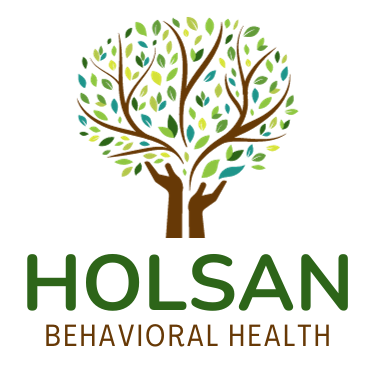Post-Traumatic Stress Disorder (PTSD) is a serious mental health condition that can significantly impact a person’s daily life. Individuals living with PTSD often experience debilitating symptoms that interfere with their ability to function and find joy in everyday activities. Understanding PTSD’s impact and exploring the available treatments are crucial for managing and ultimately overcoming this condition.
According to the Anxiety & Depression Association of America (ADAA), there are currently about 12 million people in the United States living with PTSD.
Explore This Article
The Impact of PTSD on Mental Health and Daily Life
PTSD symptoms can manifest in various ways, including flashbacks, nightmares, severe anxiety, and uncontrollable thoughts related to a traumatic event. These experiences can lead to emotional numbness, difficulty sleeping, irritability, and feelings of detachment. In addition to affecting mental health, PTSD can contribute to physical symptoms such as chronic pain, headaches, and gastrointestinal issues. The constant state of fear and hypervigilance often makes it difficult to maintain relationships, hold a job, or engage in social activities, leading to a diminished quality of life.
1. Medication Management at Holsan Behavioral Health
At Holsan Behavioral Health, medication management is a key component of our holistic approach to treating PTSD. While therapy is essential, medications can help alleviate symptoms, particularly when combined with counseling. Some of the most effective medications for managing PTSD symptoms include:
- Selective Serotonin Reuptake Inhibitors (SSRIs): These medications, often used to treat depression and anxiety, can also help balance serotonin levels and reduce PTSD symptoms.
- Prazosin: Commonly used to reduce nightmares and improve sleep quality for individuals with PTSD.
- Antidepressants and Anxiolytics: These medications can help manage co-occurring depression and anxiety symptoms, providing a more stable foundation for therapeutic work.
Medication management is closely monitored by healthcare professionals to ensure that treatment is effective and adjusted as necessary, aiding in each patient’s healing process. At Holsan, we provide personalized care to ensure each patient’s treatment plan is tailored to their unique needs.
2. The Importance of Therapy and Counseling
A comprehensive treatment plan for PTSD usually involves both medication and therapy. Evidence-based therapies such as Cognitive Behavioral Therapy (CBT), Prolonged Exposure Therapy (PE), and Eye Movement Desensitization and Reprocessing (EMDR) are effective in helping individuals process and recover from traumatic experiences. These therapies empower individuals to regain control over their emotions, reduce the impact of traumatic memories, and build resilience.
3. The Value of a Holistic Approach
Managing PTSD effectively requires a comprehensive, individualized approach. At Holsan Behavioral Health, we emphasize the importance of addressing both the psychological and physiological components of PTSD. While our primary focus is on medication management, we recognize the critical role that therapy and counseling play in long-term recovery. Explore PTSD Treatment and Facts.
Behavioral therapy—is integral to healing from trauma. These therapies help patients develop healthier thought patterns, confront and process traumatic memories, and learn effective coping mechanisms for stress and triggers. Behavioral therapy works to retrain the brain’s response to trauma, reducing the emotional and psychological impact of past events while empowering patients to manage their symptoms in everyday life.
In addition to therapy, adopting new habits and integrating positive lifestyle changes can greatly enhance recovery. Patients are encouraged to engage in regular physical activity, which has been shown to reduce PTSD symptoms by promoting mental clarity and improving mood through the release of endorphins. Mindfulness practices such as meditation, yoga, and deep-breathing exercises are often introduced to help manage anxiety and build resilience against stress.
Holsan Behavioral Health also emphasizes integrative health approaches, combining traditional treatments with complementary therapies like nutrition counseling, acupuncture, and biofeedback. A well-rounded treatment plan considers the importance of sleep hygiene, balanced nutrition, and regular physical exercise, all of which can significantly affect both the mind and body’s capacity to heal from trauma.
By fostering positive habits and integrating these holistic elements, we aim to provide our patients with the tools needed for sustainable, long-term healing, ensuring a higher quality of life even after treatment concludes.
Final Thoughts
Recovering from PTSD is a multifaceted journey that requires patience, support, and the right treatment plan. At Holsan Behavioral Health, we are committed to providing comprehensive medication management tailored to your specific needs. If you or a loved one is struggling with PTSD, know that help is available. Reach out to us to explore your treatment options and take the first step toward healing.
For more information or to schedule an appointment, please contact us today. Together, we can help you reclaim your life from PTSD.

